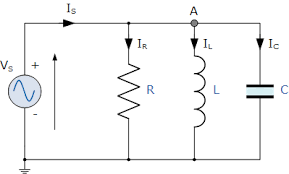Circuits
Here you can find lists of great Circuits books recommended by some of top experts form best universities and leading technology companies.

Circuit theory is the study of how electric charges behave in and around electric circuits. It is a fundamental subject in electrical engineering that deals with the analysis and design of electric circuits using tools from mathematics, such as differential equations and complex numbers.
In circuit theory, electrical quantities such as voltage, current, and resistance are represented by mathematical quantities and analyzed using techniques from algebra, calculus, and differential equations. These techniques allow electrical engineers to understand the behavior of circuits and predict how they will respond to different conditions.
Circuit theory also involves the study of circuit elements, such as resistors, capacitors, and inductors, and how they interact with each other in electric circuits. It also includes the study of circuit theorems, such as Ohm’s law, Kirchhoff’s laws, and Thevenin’s theorem, which are fundamental principles that are used to analyze and design electrical circuits.

Here are a few more points about circuit theory:
One of the main goals of circuit theory is to develop mathematical models of electric circuits that allow electrical engineers to analyze and predict the behavior of circuits under different conditions. These models are used to understand how electric charges flow through a circuit, how they are affected by the resistance of circuit elements, and how they produce and respond to voltage and current.
Circuit theory also involves the study of circuit elements and their properties. For example, resistors are used to oppose the flow of current in a circuit, while capacitors and inductors are used to store and release electrical energy. These elements can be combined in different ways to create complex circuits that perform a variety of functions.
Circuit theorems are important principles that are used to analyze and design electrical circuits. Ohm’s law states that the current through a conductor between two points is directly proportional to the voltage across the two points, and inversely proportional to the resistance between them. Kirchhoff’s laws are a set of rules that describe the conservation of energy and charge in an electrical circuit. Thevenin’s theorem is a method for simplifying complex circuits by replacing them with an equivalent circuit composed of a single voltage source and a single resistor.
Circuit theory is a broad field that encompasses a variety of subfields, such as power systems, electronic circuits, and control systems. Electrical engineers who specialize in circuit theory may work on a wide range of projects, including designing and analyzing electrical systems for power generation and distribution, developing new electronic devices and circuits, and designing control systems for industrial processes.
Overall, circuit theory is a crucial field in electrical engineering that provides a foundation for the understanding and design of electrical systems and devices.